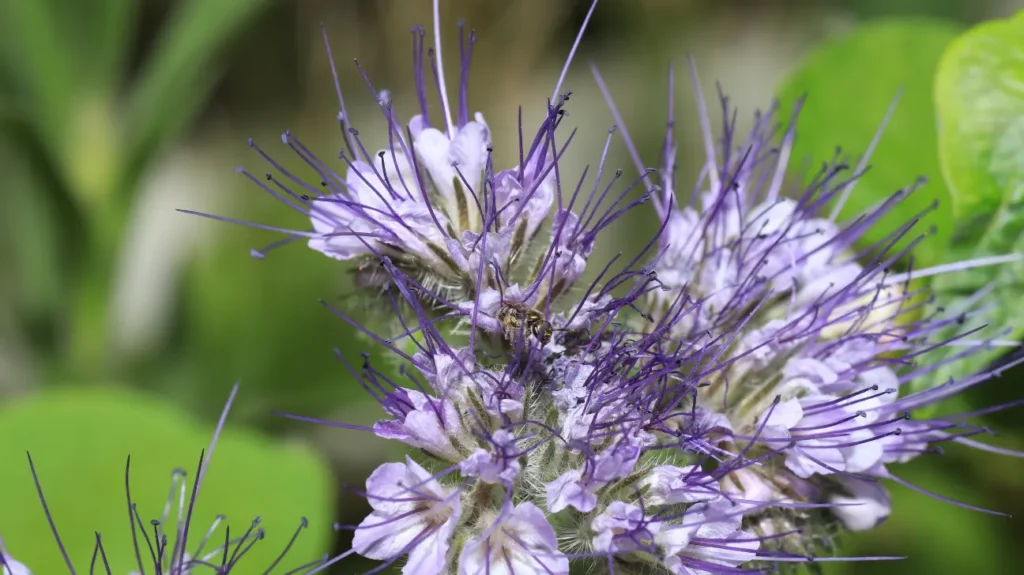Pennyroyal (Mentha pulegium) is a member of the mint family that has been used for centuries in traditional medicine. Historically, it has been used for a range of purposes, from digestive aid to insect repellent. Recently, pennyroyal has been discussed in alternative health circles for its potential nootropic benefits, which are substances thought to enhance cognitive function, such as memory, focus, and overall brain performance. However, despite its long history of medicinal use, pennyroyal carries significant health risks due to its toxic components, particularly pulegone. In this article, we will explore the chemistry of pennyroyal, its potential nootropic benefits, dosage recommendations, side effects, interactions with other drugs and supplements, and safety considerations.
You May Also Like:
Sources of Pennyroyal
Pennyroyal is native to Europe, North Africa, and the Middle East but is now cultivated in various regions around the world. It is typically found in moist environments, such as marshlands and along riverbanks. Pennyroyal can be ingested in several forms, including:
- Essential oil: Pennyroyal oil is highly concentrated and is often used in aromatherapy or as a topical agent.
- Herbal tea: Pennyroyal leaves can be dried and used to make herbal infusions.
- Capsules and extracts: Supplements containing pennyroyal extracts are sometimes marketed for digestive or menstrual issues.
Despite these various preparations, pennyroyal is known primarily for its medicinal history rather than widespread modern usage, especially as a nootropic. It is crucial to emphasize that the use of pennyroyal essential oil should be avoided for internal consumption due to its toxic effects.

Chemistry of Pennyroyal
The primary active component of pennyroyal is pulegone, a monoterpene ketone that gives pennyroyal its characteristic minty aroma. Pulegone, while naturally occurring in several plants, including pennyroyal and spearmint, is known for its toxic effects on the liver and central nervous system when consumed in large amounts. It is metabolized in the liver into toxic intermediates that can cause significant damage to liver cells and the central nervous system.
Other components of pennyroyal include menthone and isomenthone, which are also present in other mint plants. These compounds contribute to pennyroyal’s characteristic aroma and potential therapeutic properties, such as being a mild stimulant and digestive aid. However, these compounds are not known to have significant nootropic effects.

Physiological Mechanisms of Action
Pennyroyal’s purported benefits for the brain are largely anecdotal, with little scientific evidence to support its use as a nootropic. However, it is thought that pennyroyal may exert mild stimulant effects due to its active terpenes, including pulegone. These effects might theoretically enhance cognitive function by increasing alertness and wakefulness, but such actions come with significant risks.
The toxicity of pulegone overshadows any potential benefits pennyroyal may offer. In the liver, pulegone is metabolized into harmful metabolites, including menthofuran, which is responsible for many of its hepatotoxic effects. These toxic metabolites can deplete glutathione, a key antioxidant in the body, leading to oxidative stress and cellular damage. Given this mechanism, pennyroyal’s use poses far greater risks than potential cognitive enhancement benefits.
Fuel Your Mind and Relax Your Nerves with Pennyroyal Tea, Oil, and Tincture—Order Now on Amazon!

Nootropic Benefits of Pennyroyal
Pennyroyal (Mentha pulegium) has garnered attention as a potential nootropic, or cognitive enhancer, due to its range of bioactive compounds. While it is most commonly recognized for its traditional medicinal uses, its role in brain health and cognitive function is emerging. The nootropic benefits of pennyroyal can be attributed to its effects on mood regulation, neuroprotection, and mental clarity.
1. Mood Regulation and Stress Relief
One of the most well-documented properties of pennyroyal is its calming effect on the nervous system. It has been traditionally used for its sedative and anxiolytic properties, which can have indirect nootropic benefits by reducing stress and anxiety, conditions that often impair cognitive performance. Stress and anxiety are known to negatively affect memory, attention, and overall mental clarity. Pennyroyal contains volatile oils, such as pulegone and menthone, which are thought to interact with neurotransmitter systems in the brain, particularly GABA receptors. GABA (gamma-aminobutyric acid) is an inhibitory neurotransmitter that helps calm the brain and promote relaxation. By potentially enhancing GABAergic activity, pennyroyal may help reduce anxiety and promote a state of mental calm conducive to improved cognitive function.
2. Neuroprotective Properties
Oxidative stress and inflammation are significant contributors to cognitive decline and neurodegenerative diseases such as Alzheimer’s and Parkinson’s. The brain, due to its high oxygen consumption, is particularly vulnerable to oxidative damage caused by free radicals. Pennyroyal contains a variety of antioxidant compounds, including flavonoids, which may help mitigate oxidative damage in the brain. These antioxidants can neutralize free radicals and reduce oxidative stress, thus protecting brain cells from damage and supporting long-term cognitive health.
The potential neuroprotective benefits of pennyroyal may also extend to its anti-inflammatory effects. Chronic inflammation in the brain is associated with cognitive decline and memory impairment. The anti-inflammatory properties of pennyroyal could help reduce neuroinflammation, thereby preserving cognitive function and preventing the progression of age-related cognitive disorders.
3. Cognitive Clarity and Focus
Pennyroyal’s potential to improve mental clarity and focus is tied to its ability to alleviate mental fatigue. Mental fatigue is often a result of prolonged cognitive exertion, stress, or insufficient sleep, all of which can impair concentration and focus. By reducing stress levels and promoting relaxation, pennyroyal may enhance cognitive performance in tasks that require sustained attention. While pennyroyal does not provide a direct stimulant effect, its potential ability to clear mental fog and promote a more relaxed mental state can lead to improved productivity and focus.
4. Memory Support
Though less directly studied, pennyroyal’s potential to support memory is related to its neuroprotective effects. By protecting neurons from oxidative damage and inflammation, pennyroyal may help maintain healthy brain function, which is crucial for memory retention and recall. Additionally, its calming effects on the nervous system can help create an optimal environment for memory formation, particularly in high-stress situations where memory retention may otherwise be impaired.

Dosage and Supplementation Guidelines
Pennyroyal oil, in particular, is highly toxic and should never be taken internally. Even small amounts can cause liver damage, seizures, and, in some cases, death. Therefore, pennyroyal oil should be strictly avoided as a supplement for cognitive enhancement or any other purpose. Historically, pennyroyal tea made from dried leaves has been used for digestive issues and other ailments, but even in this form, caution is advised due to its potential toxicity.
General Nootropic Dosage
There is no established dosage for pennyroyal as a nootropic because its use for this purpose is not well-supported by scientific research. Historically, pennyroyal tea has been brewed with about 1-2 grams of dried leaves per cup of water, but this amount should be used cautiously. Given the known risks, pennyroyal should not be used as a supplement for cognitive enhancement, and there are many other safer and more effective nootropics available.
Supplement Forms
- Pennyroyal tea: Occasionally used in traditional medicine for digestive issues. However, the risks associated with its use far outweigh any potential benefits, particularly for nootropic purposes.
- Capsules or extracts: These forms may claim to offer pennyroyal’s benefits without the risks of the essential oil. Still, the concentration of pulegone and other harmful components can vary widely, and such products should be avoided for cognitive enhancement purposes.

Side Effects and Safety
Pennyroyal poses significant risks, especially when consumed in the form of essential oil, which contains concentrated levels of toxic compounds like pulegone. Even in smaller doses, pennyroyal can cause a range of adverse effects, including:
- Liver Damage: Pulegone is metabolized into toxic compounds that can severely damage liver cells. Cases of acute liver failure have been reported following ingestion of pennyroyal oil.
- Seizures: Ingestion of pennyroyal, particularly in oil form, can lead to central nervous system toxicity, including seizures.
- Nausea and Vomiting: Even in small amounts, pennyroyal can cause gastrointestinal distress, including nausea, vomiting, and abdominal pain.
- Kidney Damage: Pulegone and its metabolites can also have toxic effects on the kidneys, leading to kidney damage and, in severe cases, kidney failure.
- Respiratory Distress: Inhalation or ingestion of pennyroyal oil can cause breathing difficulties, including rapid or labored breathing, and, in some cases, respiratory failure.
Interactions with Other Supplements and Medications
Due to its toxic profile, pennyroyal interacts negatively with several medications and supplements. It is crucial for individuals to avoid using pennyroyal alongside any of the following:
- Blood Thinners: Pennyroyal may increase the risk of bleeding, particularly when taken with anticoagulant medications like warfarin or aspirin.
- Liver Enzyme Modifiers: Medications that affect liver enzymes (such as certain antibiotics or antifungal drugs) may increase the risk of liver toxicity when combined with pennyroyal.
- Other Nootropics: Given pennyroyal’s potential for toxicity, it should not be combined with other nootropics, especially those that increase metabolic or cognitive activity. This could exacerbate its toxic effects on the brain and liver.
- Herbal Supplements: Combining pennyroyal with other herbs known to affect liver or kidney function (such as comfrey or kava) could lead to serious health complications.
Risks for Individuals with Certain Health Conditions
Certain individuals should avoid pennyroyal entirely due to the heightened risks it poses:
- Pregnant Women: Pennyroyal is historically known for its use in inducing abortions, and ingestion can cause uterine contractions, leading to miscarriage or preterm labor.
- Individuals with Liver Disease: Those with pre-existing liver conditions are at a significantly increased risk of liver damage from pennyroyal use, even in small amounts.
- Individuals with Kidney Disease: Since pennyroyal can be toxic to the kidneys, those with compromised kidney function should avoid it to prevent further damage.
- Individuals with Seizure Disorders: Pennyroyal can provoke seizures, especially when consumed in large amounts or in concentrated oil form, making it particularly dangerous for individuals with epilepsy or other seizure disorders.

Conclusion
Pennyroyal is not a safe or reliable nootropic supplement. While some herbalists and alternative medicine proponents claim that it can improve cognitive function or increase alertness, these claims are unsupported by scientific evidence. Furthermore, the risks associated with pennyroyal far outweigh any potential cognitive benefits. Pulegone, the plant’s main active compound, is highly toxic and can cause severe liver and kidney damage, seizures, and even death when consumed in significant amounts.
For those seeking nootropic benefits, there are many other safer and more well-researched alternatives, such as caffeine, L-theanine, or racetams, that offer cognitive enhancements without the life-threatening risks of pennyroyal. If cognitive enhancement is your goal, pennyroyal is not the supplement to choose. As always, individuals should consult with a healthcare provider before taking any new supplement, particularly one with as high a risk profile as pennyroyal.

References:
- Pennyroyal. Retrieved from: https://www.rxlist.com/supplements/pennyroyal.htm
- Mentha Pulegium: A Plant with Several Medicinal Properties. Retrieved from: https://pubmed.ncbi.nlm.nih.gov/37711001/
- Targeted Delivery of Pennyroyal via Methotrexate Functionalized PEGylated Nanostructured Lipid Carriers into Breast Cancer Cells; A Multiple Pathways Apoptosis Activator. Retrieved from: https://pmc.ncbi.nlm.nih.gov/articles/PMC10676553/
Important Note: The information contained in this article is for general informational purposes only, and should not be construed as health or medical advice, nor is it intended to diagnose, prevent, treat, or cure any disease or health condition. Before embarking on any diet, fitness regimen, or program of nutritional supplementation, it is advisable to consult your healthcare professional in order to determine its safety and probable efficacy in terms of your individual state of health.
Regarding Nutritional Supplements Or Other Non-Prescription Health Products: If any nutritional supplements or other non-prescription health products are mentioned in the foregoing article, any claims or statements made about them have not been evaluated by the U.S. Food and Drug Administration, and such nutritional supplements or other health products are not intended to diagnose, treat, cure, or prevent any disease.


